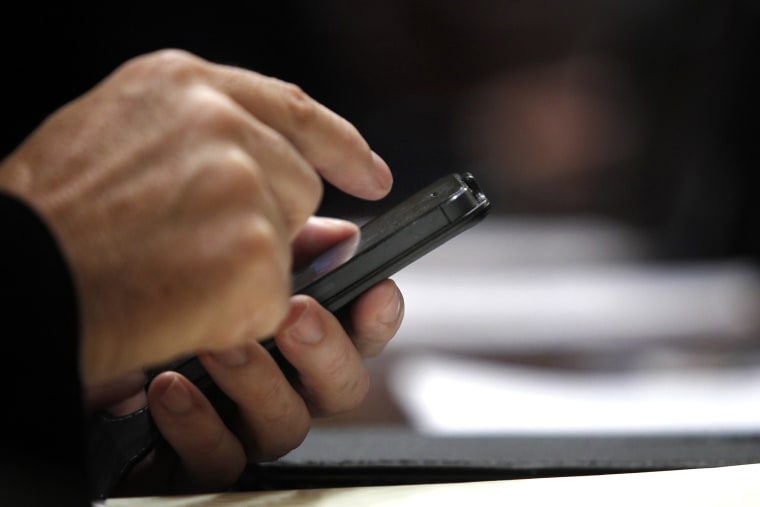When a criminal suspect is taken into police custody, he or she is searched as a standard practice of law enforcement. In fact, when someone's arrested, their pockets, purses, wallets, etc. are subject to police searches, without a warrant, and there's no real debate about "search incident to arrest" rules.
But can a suspect's cell phone be searched in the same way? For law enforcement, the answer has been no: if a suspect is arrested, they argue, searching the phone he or she is carrying is no different than searching a purse. For privacy advocates and civil libertarians, there's a qualitative difference -- cell phones, which didn't exist when "search incident to arrest" rules were created, contain vast amounts of personal information, and if the police want to go digging through someone's emails, call history, and texts, they should get a warrant.
The case went to the Supreme Court, which apparently didn't consider the matter a close call. Adam Serwer
reported:
Police need a warrant to search the cell phone of a person who has been arrested, absent an unusual circumstance, the Supreme Court ruled Wednesday. "Modern cell phones," Chief Justice John Roberts wrote, "are now such a pervasive and insistent part of daily life that the proverbial visitor from Mars might conclude they were an important feature of human anatomy."
The entirety of the ruling is online
here (pdf). Note, despite the significance of the legal controversy, this was a unanimous, 9-0 ruling. Roberts wrote the majority ruling, while Alito had a concurring opinion.
It's also worth noting that the decision applies "exigent circumstances" to search rules. From the ruling:
"In light of the availability of the exigent circumstances exception, there is no reason to believe that law enforcement officers will not be able to address some of the more extreme hypotheticals that have been suggested: a suspect texting an accomplice who, it is feared, is preparing to detonate a bomb, or a child abductor who may have information about the child's location on his cell phone. "The defendants here recognize -- indeed, they stress -- that such fact-specific threats may justify a warrantless search of cell phone data."
Short of that, though, law enforcement will need a warrant to search cell phones. It's a big win for privacy advocates and the integrity of digital data in general.
